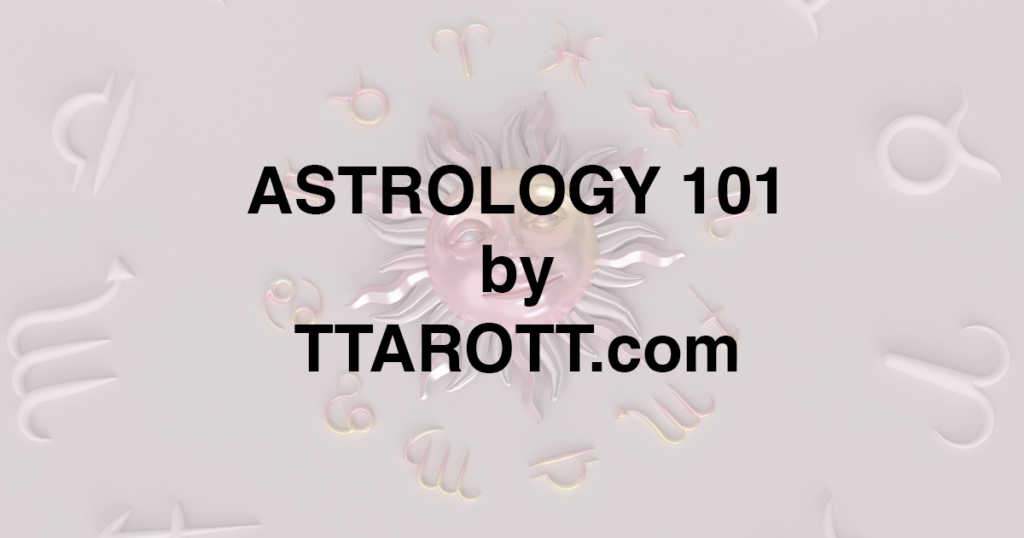Welcome to our blog post on how to read a Vedic Astrology chart! Vedic Astrology, also known as Jyotish, is an ancient system of astrology that originated in India. It is a powerful tool for gaining insights into various aspects of life, including relationships, career, health, and spirituality.
In this blog post, we will provide you with a comprehensive guide on understanding and interpreting a Vedic Astrology chart. We will walk you through the key elements of a chart, including the 12 houses, the planets, and the zodiac signs. You will learn how each of these components plays a crucial role in shaping your destiny.
Once you have a solid understanding of the basic components, we will delve into the process of interpreting the houses in your chart. We will explore the significance of each house and how the planets positioned in different houses can influence different areas of your life. Additionally, we will discuss the importance of the Ascendant house and its impact on your overall personality and life path.
Next, we will guide you through the analysis of the planets in your Vedic Astrology chart. You will learn about the meaning and characteristics of each planet and how to determine their strength in your chart. We will also discuss the impact of planetary combinations and how they can shape your life experiences.
Understanding the zodiac signs is another crucial aspect of reading a Vedic Astrology chart. We will explore the characteristics and influences of each zodiac sign and how your specific zodiac sign can affect various areas of your life. Additionally, we will highlight the significance of your Moon sign and how it plays a role in your emotions and inner self.
In conclusion, we will discuss how to apply the principles of Vedic Astrology in your daily life. We will provide you with practical tips on how to use the insights gained from your chart to make informed decisions and navigate through life’s challenges.
Whether you are new to Vedic Astrology or have some prior knowledge, this blog post will serve as a valuable resource for understanding and interpreting your Vedic Astrology chart. So, let’s embark on this enlightening journey together and unlock the secrets of the stars!
Understanding Vedic Astrology: An Overview
Vedic Astrology, also known as Jyotish, is a profound system of astrology that has been practiced for thousands of years in India. It is a holistic approach to understanding the patterns and influences of celestial bodies on human life. Unlike Western astrology, which primarily focuses on the Sun sign, Vedic Astrology takes into account the positions of the planets at the time of your birth, as well as their interactions with the zodiac signs and houses.
At the core of Vedic Astrology lies the belief that the positions of the planets at the time of your birth can reveal valuable insights into your personality, tendencies, strengths, weaknesses, and life events. It is believed that every individual is born with a unique cosmic imprint, and Vedic Astrology helps decipher this cosmic code.
Vedic Astrology is deeply rooted in the ancient texts and scriptures of India, such as the Vedas and the Puranas. These texts provide the foundation for the principles and techniques used in Vedic Astrology. The knowledge and wisdom passed down through generations have enriched and refined this system, making it a comprehensive and accurate tool for understanding human life.
One of the fundamental principles of Vedic Astrology is the concept of karma. It is believed that our actions in past lives and the accumulated karma shape our present circumstances and future experiences. Vedic Astrology helps us understand the karmic patterns and lessons that we need to learn in this lifetime.
In Vedic Astrology, the birth chart, also known as the horoscope or the Janam Kundli, is the blueprint of an individual’s life. It is a graphical representation of the positions of the planets, zodiac signs, and houses at the time of birth. By analyzing the birth chart, an astrologer can gain profound insights into various aspects of an individual’s life, including career, relationships, health, and spirituality.
Vedic Astrology operates on the principle of interconnectedness. It recognizes that everything in the universe is interconnected, and the movements and positions of celestial bodies have a profound impact on our lives. By understanding these cosmic influences, we can align ourselves with the natural rhythms of the universe and make conscious choices that can lead to a fulfilling and harmonious life.
In the following sections, we will explore the key elements of a Vedic Astrology chart and guide you through the process of interpreting and analyzing the various components. So, let’s dive deeper into the fascinating world of Vedic Astrology and unlock the mysteries of the cosmic realm.
Key Elements of a Vedic Astrology Chart
A Vedic Astrology chart, also known as a horoscope or Janam Kundli, is a graphical representation of the positions of celestial bodies at the time of your birth. It serves as a key tool for understanding and interpreting various aspects of your life. Let’s explore the key elements that make up a Vedic Astrology chart:
The 12 Houses
The Vedic Astrology chart is divided into 12 houses, each representing different aspects of life. Each house is associated with specific areas such as personality, wealth, relationships, career, health, and spirituality. Understanding the significance of each house is essential for interpreting the different facets of your life.
The Planets
The planets in Vedic Astrology are considered as cosmic energies that influence various aspects of human existence. There are nine main planets: Sun, Moon, Mars, Mercury, Jupiter, Venus, Saturn, Rahu (North Node of the Moon), and Ketu (South Node of the Moon). Each planet represents different qualities and has a distinct impact on different areas of life.
The Zodiac Signs
The Vedic Astrology chart is also divided into 12 zodiac signs, each associated with specific personality traits and characteristics. These signs are based on the position of the Sun at the time of your birth. Each zodiac sign represents a unique combination of elements (fire, earth, air, and water) and modes (cardinal, fixed, and mutable), which further influence your personality and behavior.
The Ascendant (Lagna)
The Ascendant, also known as the Lagna, is one of the most important elements in a Vedic Astrology chart. It represents the sign that was rising on the eastern horizon at the time of your birth. The Ascendant plays a significant role in determining your physical appearance, temperament, and overall personality. It sets the stage for the placement of the planets in the different houses of the chart.
The Aspects
In Vedic Astrology, aspects refer to the dynamic relationships between planets in the chart. Planets cast their influence on other planets and specific houses through their aspects. Understanding the aspects between planets can provide valuable insights into how different energies interact and influence each other in your chart.
These key elements form the foundation of a Vedic Astrology chart. By analyzing the positions of the planets in the houses, their relationships with each other, and their influences on various aspects of your life, an astrologer can offer valuable guidance and predictions.
In the following sections, we will delve deeper into each of these elements and guide you on how to interpret and analyze them in your Vedic Astrology chart. So, let’s explore the fascinating world of Vedic Astrology and unravel the secrets that lie within your birth chart.
How to Interpret the Houses in Your Vedic Astrology Chart
Interpreting the houses in your Vedic Astrology chart is a crucial step in understanding different aspects of your life. Each house represents specific areas of life, and the planets placed in these houses influence those areas in various ways. Let’s explore how to interpret the houses in your Vedic Astrology chart:
Understanding the Significance of Each House
- First House (Ascendant / Lagna): The first house represents your self-image, physical appearance, personality, and overall approach to life. It is also associated with your health and vitality.
- Second House: The second house is related to wealth, possessions, material resources, and financial stability. It also reflects your family values, speech, and communication skills.
- Third House: The third house represents communication, siblings, courage, short journeys, and skills like writing and speaking. It also reflects your relationship with neighbors and your immediate environment.
- Fourth House: The fourth house is associated with your home, family, roots, and emotional well-being. It reflects your connection with your parents and ancestral heritage. It also represents your inner emotional and psychological foundation.
- Fifth House: The fifth house is related to creativity, self-expression, romance, children, and speculative gains. It reflects your creative talents, hobbies, and interests. It also indicates your capacity for love and romantic relationships.
- Sixth House: The sixth house represents health, service, work, and daily routines. It also reflects your ability to handle challenges, enemies, and conflicts. It is associated with healing and wellbeing.
- Seventh House: The seventh house is related to partnerships, marriage, relationships, and business collaborations. It indicates your approach to committed relationships, marriage, and the qualities you seek in a partner.
- Eighth House: The eighth house represents transformation, mysteries, hidden aspects of life, and shared resources. It is associated with occult knowledge, inheritance, and deep emotional connections.
- Ninth House: The ninth house is related to higher knowledge, spirituality, philosophy, long-distance travel, and higher education. It reflects your beliefs, moral values, and quest for meaning in life.
- Tenth House: The tenth house represents your career, profession, social status, and public image. It reflects your ambitions, achievements, and how you are perceived in the world.
- Eleventh House: The eleventh house is associated with gains, aspirations, friendships, and social networks. It reflects your hopes, dreams, and the fulfillment of desires. It also indicates your association with groups and organizations.
- Twelfth House: The twelfth house represents spirituality, solitude, hidden matters, losses, and liberation. It reflects your subconscious mind, karmic patterns, and spiritual practices.
How Planets in Different Houses Affect Your Life
The planets placed in different houses of your Vedic Astrology chart bring their energies and influences to those areas of life. Each planet has its own characteristics and significations. Understanding the placement and influence of planets in specific houses can provide valuable insights into how different areas of your life are affected.
For example, if you have Venus in the seventh house, it can indicate a harmonious and loving partnership or marriage. If Mars is in the sixth house, it can indicate a competitive and action-oriented approach to work and health.
The Role of the Ascendant House
The Ascendant, or the first house, is crucial in interpreting your Vedic Astrology chart. It sets the stage for the placement of planets in the other houses and significantly influences your overall personality and life path. The characteristics of the Ascendant sign, along with any planets placed in the first house, provide important insights into your physical appearance, demeanor, and approach to life.
In the next section, we will delve deeper into how to analyze the planets in your Vedic Astrology chart. By understanding the placement and influences of the planets, you can gain a more comprehensive understanding of how they shape different aspects of your life. So, let’s continue our journey into the intricate world of Vedic Astrology.
How to Analyze the Planets in Your Vedic Astrology Chart
Analyzing the planets in your Vedic Astrology chart is a crucial step in understanding their influences on various aspects of your life. Each planet represents specific qualities and governs different areas, and their placement in the chart can provide valuable insights. Let’s explore how to analyze the planets in your Vedic Astrology chart:
The Meaning of Each Planet
- Sun (Surya): The Sun represents vitality, self-expression, leadership, and authority. It signifies your individuality, ego, and core essence.
- Moon (Chandra): The Moon represents emotions, intuition, nurturing, and the subconscious mind. It reflects your emotional needs, habits, and receptivity.
- Mars (Mangal): Mars represents energy, passion, drive, and courage. It signifies your assertiveness, ambition, and ability to take action.
- Mercury (Budha): Mercury represents communication, intellect, learning, and adaptability. It reflects your thinking process, analytical abilities, and communication skills.
- Jupiter (Guru): Jupiter represents wisdom, expansion, abundance, and spirituality. It signifies growth, knowledge, and the pursuit of higher truths.
- Venus (Shukra): Venus represents love, beauty, harmony, and creativity. It reflects your relationships, values, and aesthetic sensibilities.
- Saturn (Shani): Saturn represents discipline, responsibility, perseverance, and life lessons. It signifies limitations, challenges, and the process of maturation.
- Rahu (North Node of the Moon): Rahu represents the desire for worldly experiences, ambitions, and materialism. It signifies cravings, obsessions, and the pursuit of desires.
- Ketu (South Node of the Moon): Ketu represents spirituality, detachment, and liberation. It signifies past-life influences, karmic patterns, and spiritual growth.
How to Determine the Strength of Your Planets
To analyze the planets in your chart, it is essential to determine their strength. The strength of a planet affects its ability to manifest its qualities and influence your life. Factors that determine the strength of a planet include its placement in a specific zodiac sign, its house position, aspects from other planets, and its overall dignity in the chart.
The strength of a planet can vary from being strong (exalted) to weak (debilitated). A strong planet can bring positive outcomes and enhance the qualities it represents, while a weak planet may struggle to express its energies effectively.
The Impact of Planetary Combinations
In Vedic Astrology, the interactions between planets through conjunctions, aspects, and placements create powerful combinations that influence your life. These combinations can bring unique strengths, challenges, and opportunities.
For example, a conjunction between Mercury and Venus can enhance your communication skills and artistic abilities. On the other hand, a conjunction between Saturn and Mars can indicate a struggle between discipline and aggression.
Analyzing the planetary combinations in your chart can provide valuable insights into how different energies interact and influence each other. It allows you to understand the complexities of your personality and the dynamics of your life experiences.
By interpreting the planets in your Vedic Astrology chart, you can gain a deeper understanding of how they shape different aspects of your life. In the next section, we will explore the significance of the zodiac signs and how they further influence your chart. So, let’s continue our journey into the fascinating world of Vedic Astrology.
Understanding the Zodiac Signs in Vedic Astrology
Understanding the zodiac signs in Vedic Astrology is essential for gaining insights into different aspects of your personality, behavior, and life experiences. Each zodiac sign has unique characteristics and influences that shape your individuality. Let’s explore the significance of the zodiac signs in Vedic Astrology:
Zodiac Signs and Their Characteristics
- Aries (Mesha Rashi): Aries is a fire sign associated with energy, courage, and assertiveness. Individuals with Aries as their Sun sign are often enthusiastic, ambitious, and driven.
- Taurus (Vrishabha Rashi): Taurus is an earth sign known for stability, practicality, and sensuality. Taurus individuals are often reliable, patient, and possess a strong sense of determination.
- Gemini (Mithuna Rashi): Gemini is an air sign associated with versatility, intellect, and communication. Gemini individuals are often curious, adaptable, and enjoy socializing.
- Cancer (Karka Rashi): Cancer is a water sign known for its nurturing, emotional, and intuitive qualities. Cancer individuals are often empathetic, family-oriented, and have a strong sense of home and security.
- Leo (Simha Rashi): Leo is a fire sign associated with leadership, creativity, and self-expression. Leo individuals are often confident, charismatic, and enjoy being in the spotlight.
- Virgo (Kanya Rashi): Virgo is an earth sign known for its practicality, attention to detail, and analytical abilities. Virgo individuals are often organized, reliable, and have a strong sense of responsibility.
- Libra (Tula Rashi): Libra is an air sign associated with balance, harmony, and diplomacy. Libra individuals are often social, cooperative, and have a strong sense of justice.
- Scorpio (Vrishchika Rashi): Scorpio is a water sign known for its intensity, passion, and depth. Scorpio individuals are often mysterious, determined, and have strong emotional resilience.
- Sagittarius (Dhanu Rashi): Sagittarius is a fire sign associated with adventure, optimism, and philosophical pursuits. Sagittarius individuals are often adventurous, open-minded, and have a strong desire for freedom.
- Capricorn (Makara Rashi): Capricorn is an earth sign known for its discipline, ambition, and practicality. Capricorn individuals are often hardworking, responsible, and have a strong sense of structure and authority.
- Aquarius (Kumbha Rashi): Aquarius is an air sign associated with innovation, originality, and humanitarian efforts. Aquarius individuals are often independent, progressive, and have a strong sense of social justice.
- Pisces (Meena Rashi): Pisces is a water sign known for its compassion, imagination, and spirituality. Pisces individuals are often empathetic, intuitive, and have a strong connection to the subconscious realm.
How Your Zodiac Sign Influences Your Life
Your zodiac sign, also known as your Sun sign, represents your core identity and plays a significant role in shaping various aspects of your life. It influences your personality traits, preferences, strengths, and challenges.
While your Sun sign is an essential factor, it is important to consider other factors in your Vedic Astrology chart, such as the Moon sign, Ascendant, and the positions of other planets. These factors provide a more comprehensive understanding of your unique qualities and life experiences.
Additionally, the interactions between the zodiac signs and other elements in your chart, such as planets and houses, create a dynamic interplay of energies that further influence your life path, relationships, career, and spiritual growth.
In the next section, we will explore the importance of your Moon sign in Vedic Astrology. The Moon sign represents your emotions, instincts, and inner self. So, let’s continue our exploration of Vedic Astrology and unravel the significance of the Moon sign in your chart.
Conclusion: Applying Vedic Astrology in Daily Life
In conclusion, Vedic Astrology is a powerful tool for gaining insights into various aspects of life, including relationships, career, health, and spirituality. By understanding and interpreting the different components of a Vedic Astrology chart, such as the houses, planets, and zodiac signs, you can unlock valuable information about yourself and your life path.
Applying Vedic Astrology in daily life involves using the knowledge gained from your chart to make informed decisions and navigate through life’s challenges. Here are some ways you can apply Vedic Astrology in your daily life:
- Self-awareness and personal growth: By understanding your strengths, weaknesses, and life lessons revealed in your Vedic Astrology chart, you can embark on a journey of self-awareness and personal growth. This knowledge allows you to make conscious choices and work on improving areas of your life that need attention.
- Career and life path: Vedic Astrology can provide insights into suitable career paths and areas of life where you can find fulfillment and success. By understanding the influences of different planets and houses on your chart, you can make informed decisions about your career choices and work towards aligning your professional life with your true purpose.
- Relationships and compatibility: Vedic Astrology offers valuable insights into compatibility and relationship dynamics. By comparing the charts of two individuals, an astrologer can provide guidance on potential challenges and strengths in a relationship. This understanding can help you navigate relationships with greater awareness and make informed decisions about partnerships.
- Health and well-being: Vedic Astrology can provide insights into potential health issues and areas of vulnerability in your chart. By understanding these influences, you can take proactive steps towards maintaining your physical, emotional, and mental well-being. It can also guide you towards suitable holistic practices and remedies to support your overall health.
- Spiritual growth and self-discovery: Vedic Astrology is deeply intertwined with spirituality. By exploring the spiritual significance of planetary placements and aspects in your chart, you can gain insights into your spiritual path and personal evolution. It can guide you towards practices such as meditation, yoga, and self-reflection, fostering a deeper connection with your true self and higher consciousness.
Remember, Vedic Astrology is a tool for self-reflection and guidance. It should not be seen as a definitive blueprint or a means to predict the future. Ultimately, you have the power to shape your own destiny through conscious choices and actions.
By incorporating the wisdom of Vedic Astrology into your daily life, you can gain a deeper understanding of yourself, your relationships, and your life’s purpose. Embrace this ancient knowledge as a guiding light and embark on a transformative journey towards self-discovery and personal growth.
So, let Vedic Astrology be a source of inspiration and guidance as you navigate through the beautiful tapestry of life. May it empower you to live a life aligned with your true self and embrace the infinite possibilities that lie ahead.








